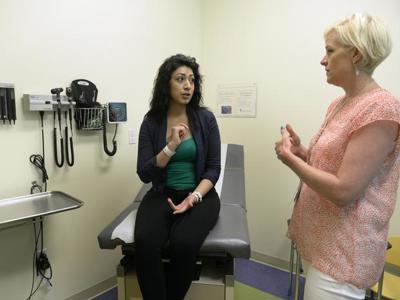- Doctors & Departments
-
Conditions & Advice
- Overview
- Conditions and Symptoms
- ¿Está enfermo su hijo?
- Parent Resources
- The Connection Journey
- Calma Un Bebé Que Llora
- Sports Articles
- Dosage Tables
- Baby Guide
-
Your Visit
- Overview
- Prepare for Your Visit
- Your Overnight Stay
- Send a Cheer Card
- Family and Patient Resources
- Patient Cost Estimate
- Insurance and Financial Resources
- Online Bill Pay
- Medical Records
- Política y procedimientos en el hospital
- Preguntamos Porque Nos Importa
-
Community
- Overview
- Addressing the Youth Mental Health Crisis
- Calendar of Events
- Child Health Advocacy
- Community Health
- Community Partners
- Corporate Relations
- Global Health
- Patient Advocacy
- Patient Stories
- Pediatric Affiliations
- Support Children’s Colorado
- Specialty Outreach Clinics
Your Support Matters
Upcoming Events
Colorado Hospitals Substance Exposed Newborn Quality Improvement Collaborative CHoSEN Conference (Hybrid)
lunes, 29 de abril de 2024The CHoSEN Collaborative is an effort to increase consistency in...
-
Research & Innovation
- Overview
- Pediatric Clinical Trials
- Q: Pediatric Health Advances
- Discoveries and Milestones
- Training and Internships
- Academic Affiliation
- Investigator Resources
- Funding Opportunities
- Center For Innovation
- Support Our Research
- Research Areas

It starts with a Q:
For the latest cutting-edge research, innovative collaborations and remarkable discoveries in child health, read stories from across all our areas of study in Q: Advances and Answers in Pediatric Health.


ADHD Medication Management (S1:E15)
Attention-deficit/hyperactivity disorder (ADHD) is the most common neurological disorder in children. When a child has ADHD, parts of their frontal lobe are less mature than in unaffected children. Common symptoms of childhood ADHD include trouble paying attention, hyperactivity and/or impulsivity. Left untreated, ADHD can negatively impact academic performance, socialization with peers, family relationships and self-esteem.
Treatment must be thoughtful and take into consideration where the symptoms are occurring. A variety of conditions can impact a child's ability to focus, including different behavior expectations at home and school. Pediatric Primary Care Providers (PCPs) should also assess anxiety and depression before making a diagnosis. When PCPs are considering ADHD medication management, it's even more important for pediatricians to look at the child's whole health history.
Listen to our pediatric psychiatry experts discuss ADHD medication management in children
As a primary care provider you will surely encounter ADHD in your pediatric practice. This episode of Charting Pediatrics can you help prepare. Joining us to share their expertise about ADHD medication management are Marissa Schiel, MD, and Danielle Stutzman, R.Ph.
Dr. Schiel is the Medical Director of the Outpatient Psychiatry Program at Children's Hospital Colorado and an assistant professor of child psychiatry at the University of Colorado School of Medicine. Danielle is a clinical pharmacist at Children's Colorado with a special interest in psychiatry medication.
In this episode, our experts explain:
- The importance of getting a detailed health history when assessing a child for ADHD
- Why it's vital to understand the spectrum of ADHD symptoms and how they affect a child's ability to function
- How to approach the ADHD medication conversation with parents
- The most common side effects that are associated with stimulants or psychotropic medication
- Helpful management strategies for dealing with potential ADHD medication side effects that PCPs can share with families
- The importance of screening a child for cardiac concerns before prescribing stimulant medications
- The functional benefits of the two different classes of stimulant-based ADHD medication for children
- The ideal target doses for specific pediatric ADHD medications
- A recommended follow-up regimen and titration strategy for children with ADHD
- How to counsel families on ADHD medication management as their child gets older
- Medication recommendations to consider when trialing non-stimulants
- The techniques PCPs can use when developing therapeutic relationships with ADHD patients and their parents
Pediatric ADHD medication management at Children's Colorado
Children and families who need help with ADHD are seen by the Pediatric Mental Health Institute (PMHI) Outpatient Services Clinic at Children's Colorado. The clinic is staffed by our expert pediatric mental health professionals who prescribe treatments for ADHD that include both therapy and medication. Refer a patient to Children's Colorado.



 720-777-0123
720-777-0123





